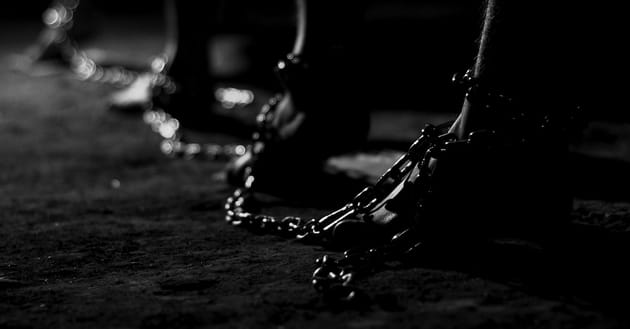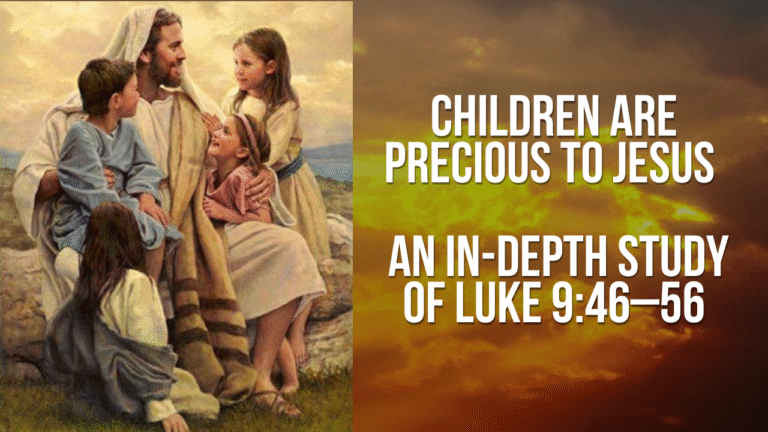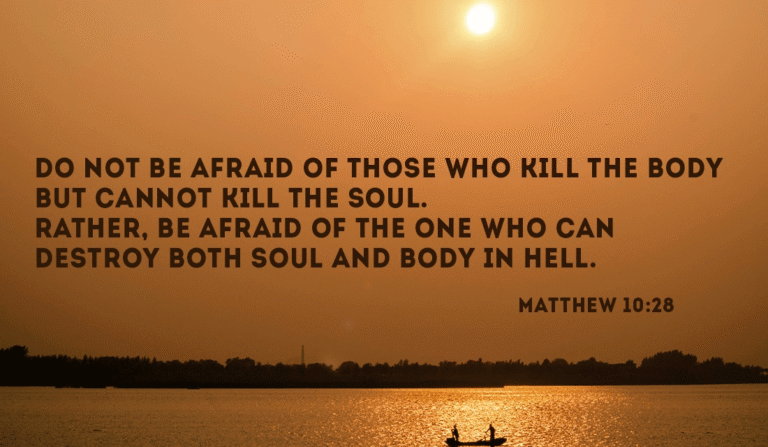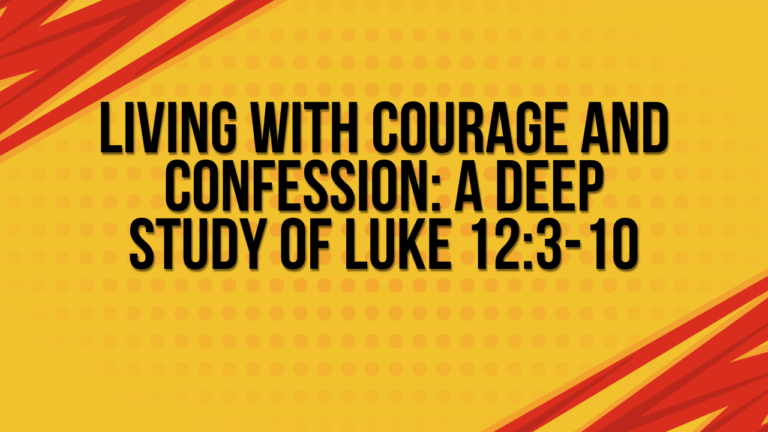Walking in God’s Way: A Study on Deuteronomy 18:9–14
Introduction
Every generation faces the challenge of choosing between the ways of God and the practices of the world. In Deuteronomy 18:9–14, Moses reminds the Israelites that as they enter the Promised Land, they must not copy the spiritual practices of the Canaanites. God sets His people apart to live differently—holy, faithful, and fully devoted to Him.
This passage remains just as relevant today. While modern cultures may not always use the same forms of witchcraft or idol worship, the temptations of the occult, spiritual shortcuts, and counterfeit powers are still very real. The call of God is clear: be blameless before the Lord and avoid the ways that lead to destruction.
The Passage: Deuteronomy 18:9–14
“When you enter the land the Lord your God is giving you, do not learn to imitate the detestable ways of the nations there. Let no one be found among you who sacrifices their son or daughter in the fire, who practices divination or sorcery, interprets omens, engages in witchcraft, or casts spells, or who is a medium or spiritist or who consults the dead. Anyone who does these things is detestable to the Lord; because of these same detestable practices the Lord your God will drive out those nations before you. You must be blameless before the Lord your God. The nations you will dispossess listen to those who practice sorcery or divination. But as for you, the Lord your God has not permitted you to do so.” (NIV)
Historical and Cultural Background
1. The Canaanite Practices
The Canaanites were known for their idolatrous and occult practices, which included child sacrifice to gods like Molech, divination through interpreting omens, necromancy (communicating with the dead), and magical rituals. These practices were tied to their religious system, which was steeped in demonic deception.
2. Why God Calls Them “Detestable”
God calls these practices “detestable” not because He is arbitrary, but because they are destructive, corrupting, and in direct rebellion against His holiness. They substitute the truth of God for the lies of the enemy, enslaving people to fear, manipulation, and false power.
3. Israel’s Unique Calling
Israel was not just another nation. They were chosen to reflect God’s character and holiness to the world (Exodus 19:5–6). To copy pagan spiritual practices would betray their covenant relationship with the Lord and undermine their witness among the nations.
A Breakdown of Forbidden Practices
1. Child Sacrifice
The ultimate perversion of worship—offering human life to appease false gods. This practice showed the depth of Canaanite depravity and why God’s judgment upon them was just.
2. Divination
The attempt to gain knowledge of the future or hidden things apart from God’s revelation. Examples include fortune-telling, astrology, and using objects like stones or cards to “read” destiny.
3. Sorcery and Witchcraft
Attempts to manipulate spiritual forces for personal gain—through rituals, spells, or invoking spirits. This represents a counterfeit power opposed to God’s Spirit.
4. Interpreting Omens
Looking for signs in natural events (e.g., the flight of birds, movements in the sky) to determine decisions. Instead of trusting God’s guidance, people sought clues from creation itself.
5. Casting Spells
Using words, charms, or rituals to control outcomes or harm others. This reflects a reliance on manipulation rather than God’s sovereign will.
6. Mediums and Spiritists
People who claimed to channel spirits or contact the dead. This opened the door to demonic deception, leading people away from God’s truth.
7. Consulting the Dead (Necromancy)
Seeking knowledge or help from departed spirits. God strictly forbids this because it denies His sufficiency and invites dark spiritual influence.
Why God Forbids These Practices
-
They Replace Trust in God
These practices reject God’s wisdom, choosing instead to depend on false powers. -
They Open Doors to Demonic Influence
Behind occult practices lies a spiritual reality—Satan seeks to counterfeit God’s truth to enslave people. -
They Lead to Moral and Spiritual Corruption
History shows that societies steeped in occult practices fall into greater injustice, violence, and immorality. -
They Undermine God’s Covenant
Israel was called to be holy and distinct. Mixing with pagan practices would break their covenant and invite judgment.
The Call to Be Blameless (Verse 13)
“You must be blameless before the Lord your God.”
The Hebrew word tamim (“blameless”) carries the idea of being wholehearted, complete, or fully devoted. God is not calling for sinless perfection but for undivided loyalty. Israel’s identity was to be rooted in God alone—not in fear, superstition, or magical shortcuts.
For believers today, this call still stands. Jesus said, “Be perfect, therefore, as your heavenly Father is perfect” (Matthew 5:48). This perfection is about maturity, sincerity, and being wholly committed to God.
Modern Applications
1. Occult Practices Today
While child sacrifice may not appear in the same form, society still embraces practices like abortion for convenience or “sacrificing” children’s well-being for success or pleasure. The occult is also widely accepted in astrology, fortune-telling, psychic readings, crystals, horoscopes, tarot cards, and more.
2. Entertainment and Culture
Movies, music, and games often glamorize witchcraft, sorcery, or contact with the dead. While some view these as “harmless fun,” they can desensitize hearts and open doors to spiritual compromise.
3. Trusting God vs. Seeking Shortcuts
Many people want quick answers, instant solutions, or control over the unknown. Yet God calls us to trust Him, walk by faith, and seek His Word—not rely on fortune-tellers, superstitions, or rituals.
4. The Christian Alternative
Instead of occult practices, God gives His people:
-
His Word (Psalm 119:105) as the lamp for guidance.
-
His Spirit (John 16:13) to lead us into truth.
-
Prayer (Philippians 4:6–7) to bring peace and direction.
-
Wise Counsel (Proverbs 11:14) for discernment.
Examples from Scripture
-
Saul Consulting the Medium (1 Samuel 28)
When King Saul abandoned God, he sought a medium at Endor. The result was disaster and further downfall. This illustrates how seeking forbidden knowledge leads to destruction. -
Daniel vs. Babylonian Magicians (Daniel 2)
When King Nebuchadnezzar demanded an interpretation of his dream, Babylon’s magicians and sorcerers failed. But Daniel, relying on God, received divine revelation. This contrast highlights the power of God over false systems. -
Simon the Sorcerer (Acts 8)
Simon practiced sorcery and amazed people, but when he encountered the gospel, he saw a power far greater than his magic. This shows that the gospel liberates people from counterfeit powers.
Lessons for Believers Today
-
Discern the Spirits
Not everything that looks spiritual is from God. We must test every teaching, dream, or influence against Scripture (1 John 4:1). -
Guard the Heart
Even “small compromises” like dabbling in horoscopes or lucky charms can weaken faith. God desires wholehearted devotion. -
Engage in Spiritual Warfare
The battle is real (Ephesians 6:10–18). Believers must resist the enemy’s schemes by standing firm in truth, prayer, and the Spirit’s power. -
Be a Light in the Darkness
As the world turns to counterfeit spirituality, Christians are called to shine with the truth of Christ—offering real hope, peace, and guidance.
A Call to Holiness
Deuteronomy 18:9–14 reminds us that God does not tolerate divided loyalty. His people are called to live in holiness, trusting Him completely. The practices forbidden here may look different today, but the principle remains: don’t mix with the world’s ways of false spirituality—walk in the light of God’s truth.
The greatest danger is not simply the practices themselves but the heart that chooses them over God. As believers, we must ask: Where do I place my trust—God, or something else?
Conclusion
As Israel prepared to enter the Promised Land, God’s warning was clear: don’t imitate the nations around you. Instead, be blameless and fully devoted to the Lord. The same challenge confronts us today.
The world offers many counterfeit spiritual paths—astrology, crystals, witchcraft, or “new age” practices promising enlightenment. But God calls us to trust Him alone. To walk with God means to reject these false ways and embrace the truth found in His Word and Spirit.
The ultimate fulfillment of God’s call to blamelessness is found in Jesus Christ. Through Him, we are cleansed, empowered, and enabled to live set-apart lives. As His people, we shine brightest when we refuse the counterfeit and walk in the power of the true and living God.
Devotional :
God calls His people to be set apart, not imitating the practices of the world. In Deuteronomy 18:9–14, He warns Israel against witchcraft, divination, and consulting the dead—things that dishonor Him and open doors to darkness. Instead of seeking answers in superstition or counterfeit power, God invites us to trust His Word, listen to His Spirit, and walk in wholehearted devotion. Today, the world still offers horoscopes, fortune-tellers, and “new age” paths, but none can bring the peace and truth that Christ gives. To be blameless before the Lord means keeping our hearts loyal to Him alone. In Jesus, we find guidance, freedom, and the light that overcomes every false way.
Prayer
Heavenly Father, keep my heart pure and my trust fully in You. Protect me from the lies and counterfeits of the world, and help me walk in Your truth. Teach me to depend on Your Word and Spirit for guidance each day. Make me blameless before You, and let my life shine with the light of Christ. Amen.







